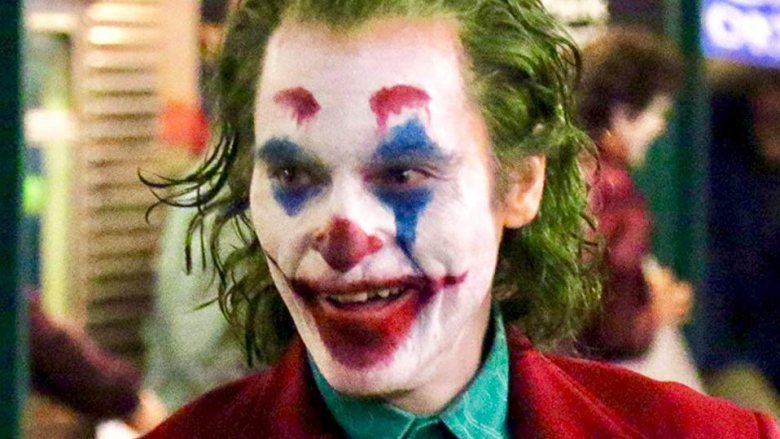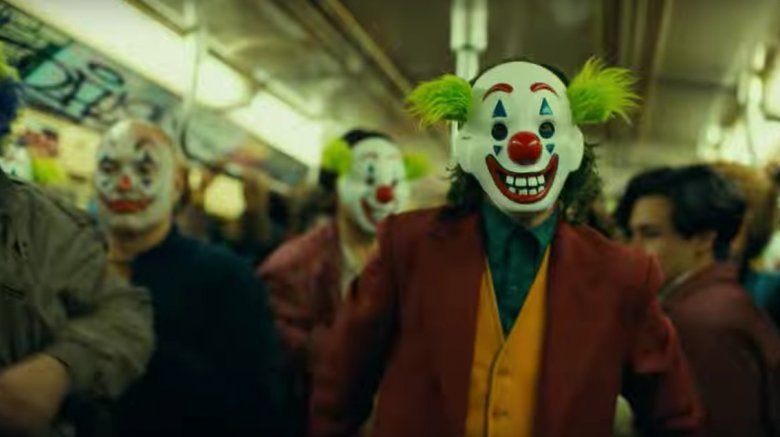Joker Director Finally Explains That Crucial Last Scene
Arthur Fleck's biggest joke just might be the one he pulled on you.
Joker director Todd Phillips recently made a few very interesting comments to the Los Angeles Times in regard to the final scene of the movie — comments which imply a bizarre truth about the nature of the story being presented. In case that's not warning enough, please be advised that major spoilers for Joker lie ahead.
First, a little context. You'll recall that in Joker, Arthur (Joaquin Phoenix) is depicted early and often as having a tenuous grip on reality. Near the beginning of the film, for example, he's shown indulging in a sort of waking dream that sees him being called up on stage from the audience during a broadcast of the talk show hosted by Murray Franklin (Robert De Niro), and that's just the beginning. The film eventually lets on that it's not always clear which of the events it depicts are fantasy and which are reality — not to the audience, and presumably not to Arthur. Heck, one entire subplot (that concerning his romantic relationship with his neighbor Sophie) is revealed to have never happened, and it's not made explicit that this is the only part of the story to have occurred solely in Arthur's head.
At the film's end, Arthur is seen with his psychiatrist in Arkham State Hospital after he has ostensibly murdered his mother, incited a riot, killed Franklin on live television, and escaped from police custody with the help of of his throngs of clown-masked followers (one of which happened to have killed Thomas Wayne and his wife Martha in front of their young son Bruce). As the shrink attempts to question him, Arthur simply laughs and laughs, telling her that she wouldn't get the joke. According to Phillips, it's this laugh which might hold a clue to the true nature of the story we just watched unfold.
"That laugh in that scene is really the only time he laughs genuinely," Phillips said. "There are different laughs in the movie. There is the laugh from Arthur's affliction and then there is his fake laugh when he's trying to be 'one of the people,' which is my favorite laugh. But at the end, when he's in the room at Arkham State Hospital, that's his only genuine laugh in the movie."
Is Arthur Fleck the real Joker?
Why is that, exactly? Well, perhaps because in the end, the joke is on us, the audience. Phillips has said that one of the main influences on his film was The Killing Joke, the acclaimed 1988 graphic novel in which the Joker says that if he must have a past, he "[prefers] it to be multiple choice." The director made a direct allusion to this dialogue in suggesting that — as many fans have speculated — Arthur Fleck might not necessarily be who we think he is.
"There's a lot of ways you could look at this movie," Phillips explained. "You could look at it and go, 'This is just one of his multiple-choice stories. None of it happened.' I don't want to say what it is. But a lot of people I've shown it to have said, 'Oh, I get it — he's just made up a story. The whole movie is the joke. It's this thing this guy in Arkham Asylum concocted. He might not even be the Joker.'"
It's unclear whether Phillips is aware of this, but this has been a fan theory since long before Joker was even released. If nothing else, the fact that Arthur is obviously in his 40s while Bruce Wayne is presented as being a child of no more than ten suggests that Arthur isn't the real deal, and that the man who will become Batman's nemesis may simply be in the background somewhere, watching all of these events play out — a possibility which Phillips then went on to state outright.
"Maybe Joaquin's character inspired the Joker," Phillips said. "You don't really know. His last line in the movie is, 'You wouldn't get it.' There's a lot going on in there that's interesting."
Phoenix himself also explained that Joker can be seen not so much as a straightforward narrative, but as a series of suggestions, if you will. "This movie requires a certain amount of participation from the audience," the actor said during his own conversation with the Times. "It's up to you how you want to interpret it and experience it. It's less you being kind of presented with the facts than you being presented with these possibilities."
Phillips may have given the whole game away, however, when asked about a potential sequel to Joker. While he has left open the possibility that he and Phoenix could return to Arthur's story, there's one thing that he specifically says that this story won't include — Batman. When asked directly if Phoenix's Fleck might take on a grown Bruce Wayne in a future film, Phillips responded, "We would never do that. No, no. We'd just want to see where he goes from there."
This statement seems to imply pretty strongly that, even if there were to never be any sequel, it is the word of the film's creator — it is canon — that Arthur Fleck will never square off with Batman. Taken together with Phillips' previous remarks, we're left with only one possibility: Arthur isn't really the Joker. Heck, his entire rampage might have taken place entirely in his head; perhaps he told the story to a fellow Arkham inmate, who told it to someone else, who passed it along until it was eventually heard by the man who would become the true Clown Prince of Crime.
We don't know, and we'll almost certainly never know — and that's the intriguing thing about Joker, a comic book movie like no other. It won't give us any answers, only those tantalizing, maddening possibilities.

